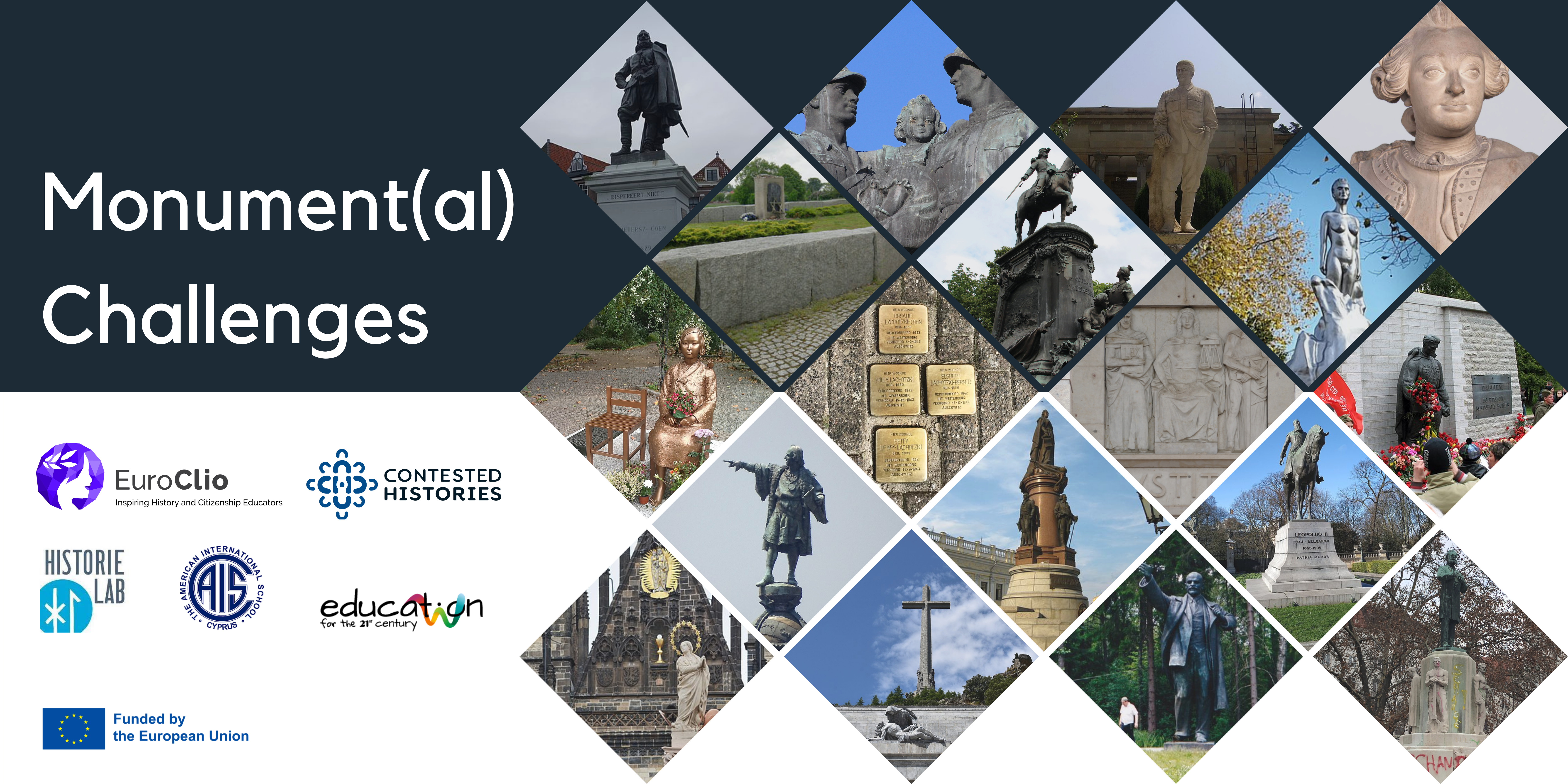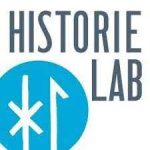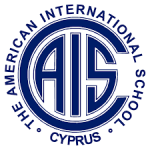Project Introduction
School classrooms across Europe are continuing to become more and more diverse. At the same time, controversies over contested historical legacies in public spaces across the world have increasingly led to contestations over cultural heritage and conflicts over the interpretation of national histories. The new EuroClio project Monument(al) Challenges, collaboratively implemented with the Contested Histories Initiative and funded by the European Union, aims to respond to some of the challenges faced by educators across Europe in teaching history. Specifically, we aim to address teachers’ requirements for resources and training materials which equip them with the skills for discussing sensitive and complex histories, including colonialism and slavery, in their classrooms.
Together with our consortium partners, we will conduct research to develop a set of educational resources. These will include an educational toolkit and various teaching-learning materials consisting of lesson plans, learning strategies, learning activities, and source collections related to contested cultural heritage. These resources will be piloted in school classroom settings and teacher training workshops. They will be disseminated with a wider audience through further workshops, a webinar series, and an accredited and self-paced online course, all of which aim to further support educators’ professional development.
The Contested Histories Initiative (CHI) studies disputes over statues, street names, and other historical legacies in public spaces with an aim to identify principles, processes and best practices for decision-makers, civil society advocates, and educators confronting the complexities of divisive historical memory. These are published in the form of impartial expert-reviewed case studies. More than 500 cases in 120 countries have been researched, with circa 225 focused on Europe.
CHI is jointly managed by the Institute for Historical Justice and Reconciliation and EuroClio.
Project Objectives
- Increase awareness and understanding that heritage and identity are closely linked and can have a strong emotional impact on an individual or community.
- Provide insight into how teaching and learning history affects students and teachers from diverse backgrounds on a personal level and the associated challenges.
- Equip teachers and students with the knowledge, skills and attitudes to address exclusion, marginalisation and societal injustices through history education.
- Create a set of adaptable resources for teaching complex histories that can be used for teaching, learning and continued professional development on local, national and European levels.
- Increase cross-sectoral cooperation between teachers, teacher trainers and researchers at the national level.
- Strengthen teachers’ and students’ critical thinking skills in assessing evidence-based information on traditional and social media platforms.
Consortium
HistorieLab
The National Centre of Excellence for the Dissemination of History and Cultural Heritage is part of University College Lillebaelt (Denmark), and works to strengthen history and civics education in primary school and teacher education through applied research and development. The Centre has hosted several projects and initiatives with museums and heritage sites on innovative ways to communicate culture and cultural heritage to pupils and children. It is also the co-organiser of a summer school on cultural heritage and national identity, and is currently also involved in a project to strengthen teachers’ abilities to teach about the Holocaust and genocide.
American International School in Cyprus (AISC)
Independent and International Baccalaureate-accredited school based in Cyprus, with a diverse student population representing 45 nationalities and 35 languages. The school’s mission is to instil in students that everyone must be valued as a unique individual, and that an understanding and appreciation of diversity are critical to peace and harmony. This is achieved through history, civics, and theory of knowledge education. In addition, the school’s teachers are affiliated with the Cyprus-based Association for Historical Dialogue and Research, carrying out joint activities such as workshops, where an understanding of contested symbols in public spaces is also needed.
Education for the 21st Century
Non-profit association founded in 2011 in Serbia to enhance educational reform and promote human rights values in a multicultural society. The Association supports all innovation in education system, following the documents adopted by the Republic of Serbia as part of its EU accession and the documents and the recommendations of the Council of Europe in the fields of education and human rights. The organisation’s activities are focused on teaching training, youth projects, and international projects concerning education and cultural heritage. Education for the 21st Century is a member of EuroClio, Europeana, and the Serbian National Convention on the European Union.

Image Credits
Row 1: Statue of Jan Pieterszoon Coen in Hoorn, Netherlands (Dqfn13, CC BY-SA 4.0); Monument of Gratitude to the Soviet Army in Legnica, Poland (Grzegorz Polak, CC BY-SA 4.0); Statue of Stalin in Gori, Georgia (Radosław Botev, CC BY 3.0 PL); Bust of Frederik V in Copenhagen, Denmark (National Gallery of Denmark, no restrictions)
Row 2: Pogrom Memorial in Jedwabne, Poland (Jacques Lahitte, CC BY-SA 3.0); Statue of Faidherbe in Lille, France (Fred Romero, CC BY 2.0); Statue of Mary Wollstonecraft in London, UK (Grim23, CC BY-SA 4.0)
Row 3: Memorial to ‘Comfort Women’ in Berlin, Germany (SagaEremit, CC BY-SA 4.0); Stolpersteine across Europe (Pictured: Amsterdam, Netherlands; Courtesy of Geordie Enoch); Mussolini Bas-Relief in Bolzano, Italy (HaTe, CC BY-SA 3.0); Bronze Soldier of Tallinn, Estonia (Liilia Moroz, CC BY-SA 4.0)
Row 4: Statue of Columbus in Barcelona, Spain (Ad Meskens, CC BY-SA 4.0); Monument to Catherine II in Odessa, Ukraine (Ivan Gricenko, CC BY-SA 3.0); Statue of Leopold II in Brussels, Belgium (Ruivar1, CC BY-SA 4.0)
Row 5: Marian Column in Prague, Czechia (Gampe, CC BY-SA 4.0); Valley of the Fallen in Sierra de Guadarrama, Spain (Richard Mortel, CC BY 2.0); Grūtas Park in Druskininkai, Lithuania (Helmi Davidsson, CC BY-SA 4.0); Dr. Karl-Lueger-Ring in Vienna, Austria (Courtesy of Roland Lehner)





